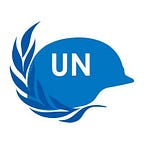The Digital Transformation of UN Peacekeeping: what does it mean for UN Police?
By: Annika Hansen & Naomi Miyashita
In August, United Nations Secretary-General António Guterres launched the Strategy for the Digital Transformation of UN Peacekeeping at the UN Security Council, where he underscored that “new technologies have great potential, if managed responsibly, to enable safer, harm-free, and more effective operations.” For its part, the Security Council, in a Presidential Statement adopted at the debate, encouraged “exploring available and future technologies and best practices that can contribute towards the safety and security of peacekeepers and protection of civilians, and allow for safer and more effective peacekeeping missions”.
The Open Debate highlighted the resounding interest of UN Member States in technology, both as a tool to strengthen peacekeeping effectiveness, and as a factor shaping conflict environments where peacekeepers are deployed. But what are the implications for the United Nations Police (UNPOL)? The digital transformation strategy envisions peacekeeping missions that are guided by timely, integrated information, and operated by a tech-aware and data-literate workforce that horizon-scans for evolving threats and opportunities, and that can rely upon tools and resources for the responsible use and development of digital technologies.
UN Police needs to develop a fuller understanding of the technologies’ potential and application. Data protection and privacy should be covered by doctrine and training to ensure that UN Police exercise the utmost rigor in data management.
There are at least three areas with direct implications for UN Police — through the UN Secretariat, police contributing countries (PCCs) and police peacekeepers on the ground.
First, the strategy is an opportunity for UN Police to enhance the implementation of their current mandated tasks by applying a technology lens throughout. This means adapting and updating police peacekeeping doctrine, developing new guidelines and training on the use of emerging technologies in UN police peacekeeping, such as databases and platforms, automated analysis tools or mobile applications, and identifying relevant best practice. UN Police closely engage with host communities and are a central contributor to the mission’s common operational picture. Technology tools will increasingly be integral to inform planning and decision-making, notably on protection of civilians. For these tools to benefit core tasks, such as support to community-oriented policing and the protection of civilians, UN Police needs to develop a fuller understanding of the technologies’ potential and application. Data protection and privacy should be covered by doctrine and training to ensure that UN Police exercise the utmost rigor in data management. Data protection and privacy standards also apply to building the capacity of host-state police, as we know from support to the Crime Data Analysis Lab in South Sudan, fingerprint analysis in Mali, and forensics in the Central African Republic and Mali.
Second, UN Police needs to prepare for the conflict theatres of tomorrow and can do so by learning and drawing from national policing doctrine and practice. Conflict settings will increasingly be characterized by new lethal and non-lethal weapons technologies, cybercrime, and online information disorder. UN Police should incorporate more specialised capacities in areas such as cyber intelligence gathering techniques, forensic cyber security capabilities, and cybersecurity. Monitoring and tracking online content, including in collaboration with host-state police, will be critical to understanding the potential for unrest and violence. Expertise in these areas would enable UN Police to deliver capacity-building support, which may include support to the digital protection of sensitive national data or infrastructure, or investigation of cyber incidents at the request of host-state authorities. For this, impartiality will be key to the credibility of UN Police work in these areas. This can be reinforced by upholding the principles outlined in the digital transformation strategy, including inclusion, transparency, and applying a do-no-harm approach.
Third, an important overarching objective of the strategy is to create a level playing field between the technology “haves” and “have nots” amongst troop and police contributors, but also between peacekeepers and host-states. The strategy encourages a multi-stakeholder, partnerships-driven approach between Member States, international organisations, civil society and the technology sector. Understanding where gaps may exist, and developing capacity-building partnerships with or between police-contributing countries will be critical in enabling a peacekeeping workforce with the requisite digital skills. Interoperability between digital technology platforms and tools will be essential for these tools to contribute to more effective mandate implementation.
As the UN Secretariat embarks on the digital transformation of peacekeeping, several concrete opportunities to galvanise diverse stakeholder support lie ahead: the Peacekeeping Ministerial Meeting in Seoul, Republic of Korea (December 2021); the United Nations Chiefs of Police Summit in New York (June 2022); and the next Partnerships for Peacekeeping Symposium in South Africa (2022). This ambitious but indispensable agenda will ensure that UN peacekeeping remains an effective and valuable peace and security tool for the 21st century. UN Police will be a central piece of the puzzle as we go forward.
This article was adapted from: https://www.coespu.org/magazine/coespu-magazine-3-2021 (pg. 34, 35)
